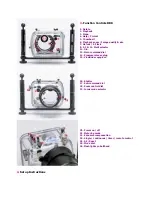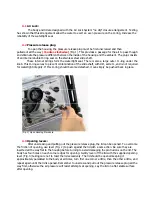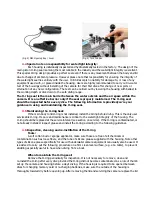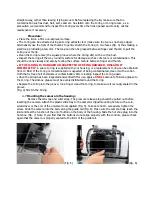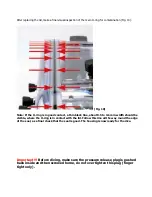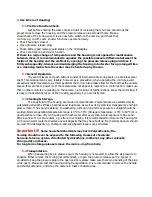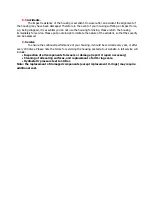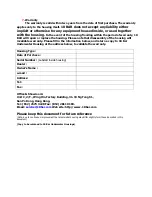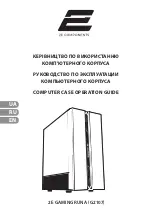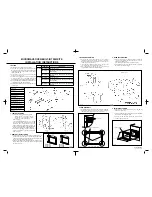
(Fig. 2) D80 Opening Key / Lever
(Fig. 3) Turn to open
4.4
Special note on responsibility for watertight integrity:
Each housing is individually inspected and hydrostatically tested in the factory. The design of the
main piston O-ring seal is among the most reliable in the industry and the watertight integrity is excellent.
This special O-ring design provides a perfect seal even if there is any movement between the body and lid
due to change of ambient pressure. However please note that responsibility for ensuring the integrity of
the watertight seal lies entirely with the user. 10 BAR accepts no liability for damage to, or loss of any
equipment used with, or placed inside the housing. Users are highly recommended to carry out in-water
test of the housings without installing of the camera for their first dive after change of new ports or
alternation of any new configuration. The test can be carried out by lowering the housing with ballast to
the working depth or dive down to the safe diving range.
The O-ring seal is the main barrier between the water outside and the air space within the
camera. It is an effective barrier only if the seal is properly maintained. The O-ring seal
should be inspected before every dive. The following information is providedyou’re your
guidance in using and maintaining the O-ring seal.
4.5
Maintaining the O-ring Seal:
If the main body to lid O-ring is not installed, install the O-ring before diving. This is the only user
serviceable O-ring. Its care and maintenance is critical to the watertight integrity of the housing. The
O-ring should be replaced at the service interval (see section on service). If the O-ring is contaminated, or
not already installed, inspect grease and install the O-ring according to the following guidelines.
4.6
Inspection, cleaning and re-instillation of the O-ring
Tools:
A soft cotton bud or sponge applicator, make sure these are free of all chemicals or
contamination such as loose fibers, and the tube of silicone grease supplied with the housing. Note other
types of silicone grease specifically for use with underwater camera equipment can usually also be used. It
is advised to carry out the following procedure on a firm clean level surface, (e.g. at a table), to prevent
skidding especially useful to have when diving from a boat.
When to maintain the O-ring seal:
Remove the O-ring periodically for inspection. It is not necessary to remove, clean and
re-install the O-ring after every dive provided the O-ring did not become contaminated. As a rule of thumb
set up the camera and housing before a day’s diving. If the housing is required to be opened between
dives for changing memory card or re-charging batteries, make sure the outside of the housing is
thoroughly toweled dry before opening up. After removing the lid and servicing the camera, replace the lid



